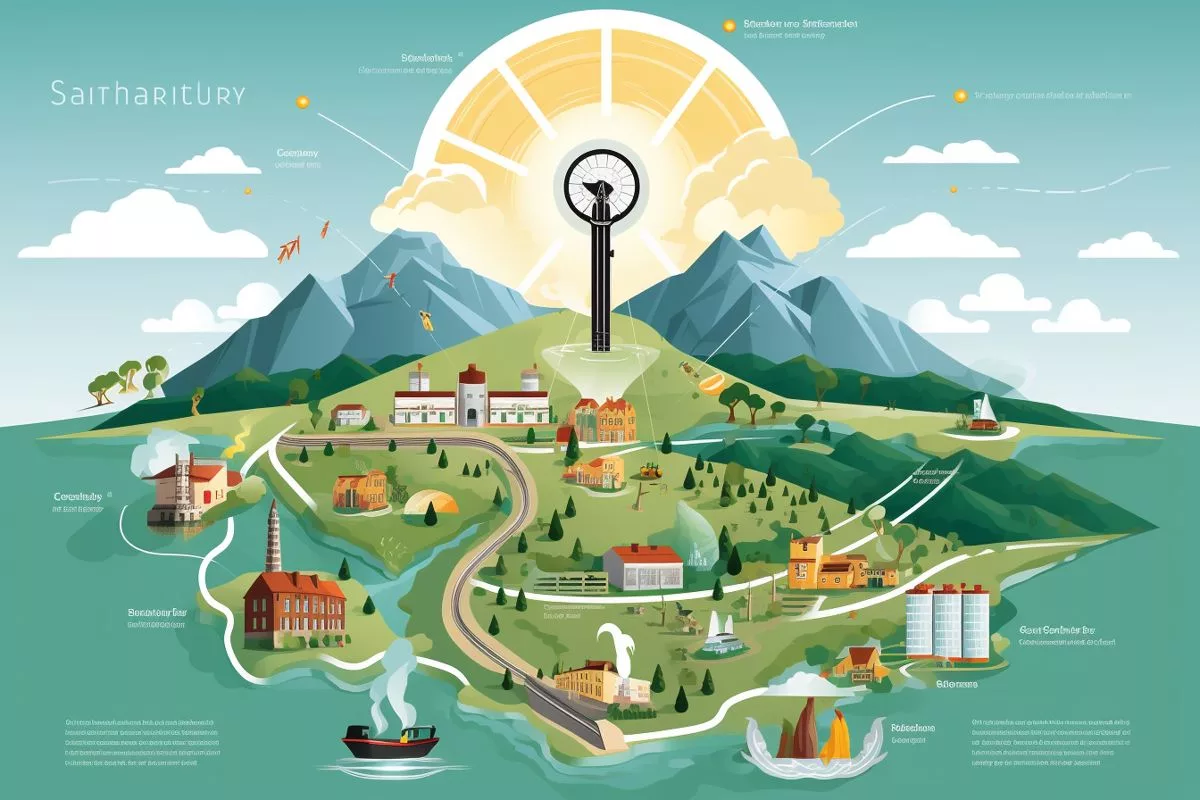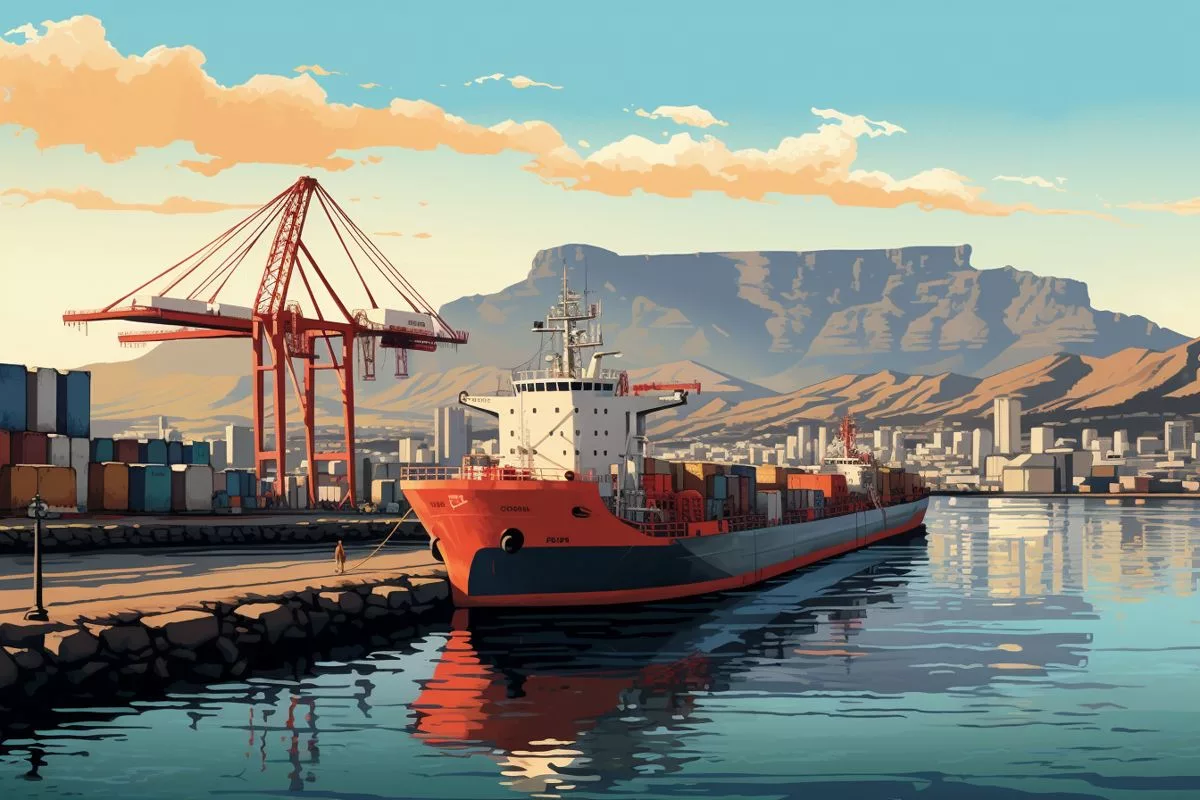The Free State Energy Security Indaba brought together experts, investors, financial backers, and policy-makers to discuss a strategy for addressing South Africa’s energy challenges. The forum identified the Free State as a central energy security hub due to its rich natural resources, strategic location, and interconnectedness to other provinces. Collaboration and diversity in the energy portfolio were emphasized, along with exploring the Free State’s vast potential for energy resources. The event fostered connections among various government spheres and social partners, united by the common vision of an energy-secure nation.
What is the Free State Energy Security Indaba?
The Free State Energy Security Indaba brought together experts, investors, financial backers, and policy-makers to discuss a comprehensive strategy for addressing South Africa’s energy challenges. The forum emphasized the enormous potential the Free State holds as South Africa’s central energy security hub due to its rich natural resources and strategic location. The province encourages collaboration and commerce within the energy sector, leading to efficient resource use and infrastructure development.
The Free State Energy Security Indaba, which took place in Bloemfontein in November 2023, represented a crucial move toward safeguarding the energy prospects of the province. The forum assembled experts, investors, financial backers, and policy-makers, emphasizing the need for a comprehensive strategy to address South Africa’s energy challenges.
Provincial leader Mxolisi Dukwana initiated the event, pointing out the enormous potential the Free State holds as South Africa’s central energy security hub. The province’s geographic location makes it economically viable for facilitating commerce and guaranteeing easy access to markets throughout the nation.
The Free State is rich in various natural resources, including natural gas, solar power, coal, uranium, hydropower, wind, and hydrogen. These plentiful resources offer significant investment opportunities. With its strategic position and proximity to five other provinces and the neighboring country of Lesotho, the Free State is poised to become a leading energy center in South Africa.
Advancing Connectivity and Diversification in the Region
The Free State’s interconnectedness enables the transportation of energy resources, equipment, and personnel throughout the area. As a center for energy production and distribution, the province encourages collaboration and commerce within the energy sector, leading to efficient resource use and infrastructure development.
A memorandum of understanding (MOU) with the University of the Free State seeks to support innovation and research in the energy field, further strengthening the province’s role in promoting energy security. This partnership will decrease South Africa’s susceptibility to supply interruptions and price fluctuations, ensuring a reliable energy supply for the nation.
A commitment to a diverse energy portfolio is central to the African National Congress (ANC) government’s plan for energy security. This approach aims to reduce the nation’s reliance on traditional energy sources like coal while transitioning to cleaner, more sustainable alternatives such as natural gas, nuclear power, renewable energy, and hydroelectric power. South Africa has abundant renewable energy potential, and the ANC government is dedicated to incorporating renewable energy sources to address environmental concerns.
Exploring the Free State’s Energy Resources and Potential
Initiatives to expand the proportion of renewable energy sources in the country’s energy portfolio include the Renewable Energy Independent Power Producer Procurement (REIPPP) program. This project attracts investment in wind, solar, and other renewable energy endeavors while addressing the financial and operational challenges faced by the state-owned utility Eskom. Moreover, the government has been exploring private sector involvement in the energy sector to enhance efficiency.
The Free State’s energy landscape features a variety of resources. For example, the province has extensive natural gas deposits, estimated at 23 billion cubic feet. In 2019, Renergen discovered a substantial helium reserve in Virginia, establishing the location of the world’s most abundant helium deposit. The company’s Phase 2 plant construction is in progress, with an estimated investment value of $1.16 billion.
In addition to gas, there are opportunities to renovate mining electricity infrastructure in the Matjhabeng area to generate power. This has inspired joint efforts to create a Special Economic Zone (SEZ) dedicated to energy in the Matjhabeng Local Municipality. Furthermore, coal and uranium resources in the region can significantly contribute to the Free State’s stature as a central energy hub.
The Xhariep District in the province has the country’s second-best solar-radiation index, making it ideal for solar power generation. This semi-arid area also holds potential for onshore shale gas extraction. Moreover, the Free State is home to the Gariep and Vanderkloof hydropower stations, which provide power to Eskom. Sasol’s plans for green hydrogen production in the region for aviation fuel and other products will further enhance the area’s status as an energy hub.
Fostering Interprovincial Collaboration for Energy Security
Collaboration and synergy between provinces will be essential for achieving energy security. The Karoo basin, which includes parts of the Free State, Eastern Cape, and Northern Cape, contains an estimated 209 trillion cubic feet of recoverable shale gas that could substantially improve the nation’s energy landscape. Additionally, the Drakensberg Pumped Storage Scheme, which generates 1,000 MW of electricity, offers another example of energy sources linking the Free State with other provinces.
To guarantee the success of these initiatives, continued political commitment, necessary investment, technical expertise, and a conducive environment will be required. The Free State Energy Security Indaba served as a platform to foster connections among various government spheres and social partners, united by the common vision of an energy-secure nation. By collaborating, the Free State and its neighboring provinces can harness their collective potential to fuel South Africa’s future.
1. What is the Free State Energy Security Indaba?
The Free State Energy Security Indaba is a forum that brings together experts, investors, financial backers, and policy-makers to discuss a comprehensive strategy for addressing South Africa’s energy challenges. The forum emphasizes the enormous potential the Free State holds as South Africa’s central energy security hub due to its rich natural resources and strategic location.
2. Why is the Free State considered a central energy security hub in South Africa?
The Free State is considered a central energy security hub in South Africa due to its rich natural resources, strategic location, and interconnectedness to other provinces. The province encourages collaboration and commerce within the energy sector, leading to efficient resource use and infrastructure development.
3. What resources does the Free State have for energy production?
The Free State is rich in various natural resources, including natural gas, solar power, coal, uranium, hydropower, wind, and hydrogen. These plentiful resources offer significant investment opportunities.
4. What is the government’s plan for energy security in South Africa?
The government’s plan for energy security in South Africa includes a commitment to a diverse energy portfolio that aims to reduce the nation’s reliance on traditional energy sources like coal while transitioning to cleaner, more sustainable alternatives such as natural gas, nuclear power, renewable energy, and hydroelectric power.
5. What is the Renewable Energy Independent Power Producer Procurement (REIPPP) program?
The Renewable Energy Independent Power Producer Procurement (REIPPP) program is a project that attracts investment in wind, solar, and other renewable energy endeavors while addressing the financial and operational challenges faced by the state-owned utility Eskom. The program aims to expand the proportion of renewable energy sources in the country’s energy portfolio.
6. What opportunities for energy production exist in the Free State’s Xhariep District?
The Xhariep District in the Free State has the country’s second-best solar-radiation index, making it ideal for solar power generation. This semi-arid area also holds potential for onshore shale gas extraction.
7. Why is interprovincial collaboration important for achieving energy security?
Interprovincial collaboration is important for achieving energy security because it allows provinces to harness their collective potential to fuel South Africa’s future. The Karoo basin, which includes parts of the Free State, Eastern Cape, and Northern Cape, contains an estimated 209 trillion cubic feet of recoverable shale gas that could substantially improve the nation’s energy landscape.
8. What is the memorandum of understanding (MOU) between the University of the Free State and the Free State government?
The memorandum of understanding (MOU) between the University of the Free State and the Free State government seeks to support innovation and research in the energy field, further strengthening the province’s role in promoting energy security. This partnership will decrease South Africa’s susceptibility to supply interruptions and price fluctuations, ensuring a reliable energy supply for the nation.








